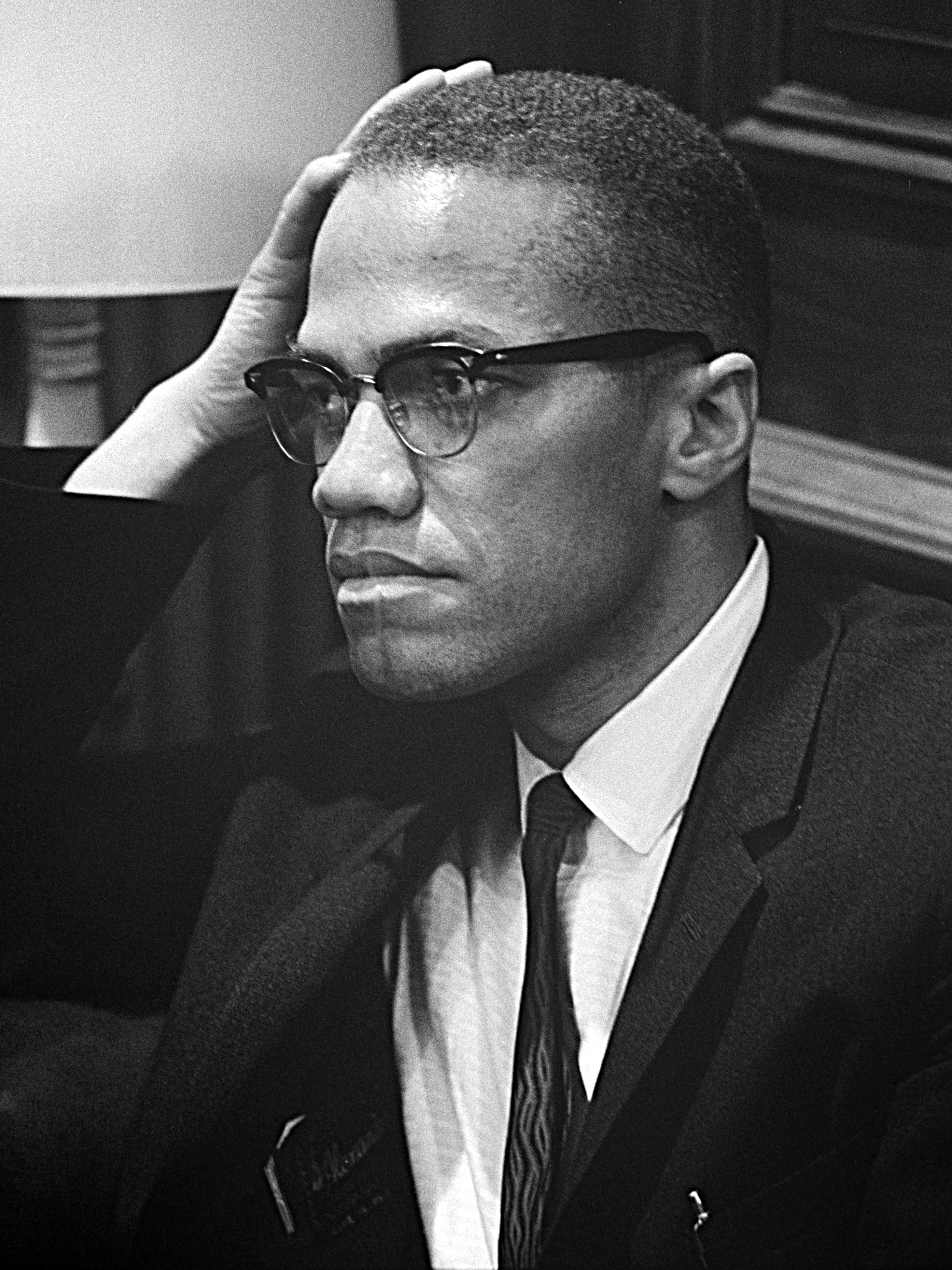Malcolm X najznámejšie citáty
Malcolm X: Citáty v angličtine
“They cripple the bird's wing, and then condemn it for not flying as fast as they.”
Malcolm X on Zionism (1964)
Zdroj: Malcolm X Speaks: Selected Speeches and Statements
The Ballot or the Bullet (1964), Speech in Cleveland, Ohio (April 3, 1964)
Kontext: I'm not going to sit at your table and watch you eat, with nothing on my plate, and call myself a diner. Sitting at the table doesn't make you a diner, unless you eat some of what's on that plate. Being here in America doesn't make you an American. Being born here in America doesn't make you an American. Why, if birth made you American, you wouldn't need any legislation; you wouldn't need any amendments to the Constitution; you wouldn't be faced with civil-rights filibustering in Washington, D. C., right now.
“We didn't land on Plymouth Rock. The rock was landed on us.”
Speech at Founding Rally http://www.panafricanperspective.com/mxoaaufounding.html of the Organization of Afro-American Unity (28 June 1964)
Kontext: We are African, and we happened to be in America. We're not American. We are people who formerly were Africans who were kidnapped and brought to America. Our forefathers weren't the Pilgrims. We didn't land on Plymouth Rock. The rock was landed on us. We were brought here against our will. We were not brought here to be made citizens. We were not brought here to enjoy the constitutional gifts that they speak so beautifully about today.
Zdroj: The Autobiography of Malcolm X (1965), p. 375
“Allah has blessed us. He has destroyed twenty-two of our enemies.”
Quoted in Julius Lester, "Look Out, Whitey!" New York: Dial Press, 1968. p. 138.
Attributed
Speech in New York City (19 February 1965), two days before he was assassinated.
Attributed
Zdroj: Malcolm X Speaks (1965), p. 163
That's how you can tell a house Negro.
Malcolm X Speaks (1965)
The Ballot or the Bullet (1964), Speech in Cleveland, Ohio (April 3, 1964)
The Ballot or the Bullet (1964), Speech in Detroit, Michigan (12 April 1964)
January 1965, p. 216
Malcolm X Speaks (1965)
"Twenty million black people in prison," in Malcolm X: The Last Speeches, p. 51
The Ballot or the Bullet (1964), Speech in Cleveland, Ohio (April 3, 1964)
The Ballot or the Bullet (1964), Speech in Cleveland, Ohio (April 3, 1964)
Telegram sent to George Lincoln Rockwell, leader of the American Nazi Party, during Rockwell's "Hate Bus" tour of the Southern US States, 1965. Quoted in an interview on January 24, 1965 and printed in Malcolm X and George Breitman, Malcolm X Speaks: selected speeches and statements, (New York: Grove Press, 1990) 201.
Attributed
